All Bayonne Addiction Treatment Centers
-
Amethyst House Chemical Dependency Community Residence
280 Richmond Terrace
Staten Island, New York 10301Treatment Programs
- Alcohol Rehab
- Dual Diagnosis
- Opioid Addiction
- +5
Insurance
- Self-pay options
- Financing available
-
Staten Island Mental Health Society Castleton Avenue
669 Castleton Avenue
Staten Island, New York 10301Treatment Programs
- Dual Diagnosis
- Young Adult Rehab
- LGBTQ Friendly Rehab
Insurance
- Medicaid
- Private insurance
- +4
-
Harrison House
313 Broadway
Staten Island, New York 10310Treatment Programs
- Alcohol Rehab
- Dual Diagnosis
- Opioid Addiction
- +4
Insurance
- Self-pay options
-
Saint Vincent Catholic Medical Center
382 Westervelt Avenue
Staten Island, New York 10301Treatment Programs
- Dual Diagnosis
- Adult Program
- Young Adult Rehab
Insurance
- Medicaid
- Self-pay options
- +1
-

Silver Lake Support Services Outpatient
201 Forest Avenue
Staten Island, New York 10301Treatment Programs
- Alcohol Rehab
- Dual Diagnosis
- Opioid Addiction
- +5
Insurance
- Medicaid
- Private insurance
- +4
-
Sun River Health CHASI
56 Bay Street
Staten Island, New York 10301Treatment Programs
- Alcohol Rehab
- Dual Diagnosis
- Opioid Addiction
- +4
Insurance
- Medicaid
- Private insurance
- +5
-
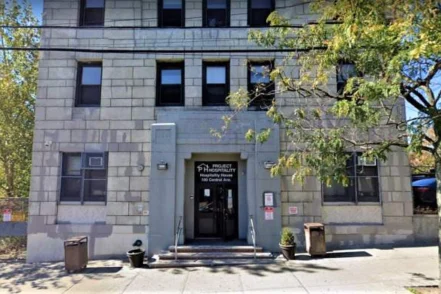
Project Hospitality Outpatient
14 Slosson Terrace
Staten Island, New York 10301Treatment Programs
- Alcohol Rehab
- Dual Diagnosis
- Opioid Addiction
- +4
Insurance
- Medicaid
- Self-pay options
- +3
-
Staten Island University Hospital Water Street
111 Water Street
Staten Island, New York 10304Treatment Programs
- Dual Diagnosis
- Opioid Addiction
- Adult Program
- +3
Insurance
- Self-pay options
- Medicaid
-
Samaritan Daytop Village Staten Island Outpatient Treatment Program
1915 Forest Avenue
Staten Island, New York 10303Treatment Programs
- Dual Diagnosis
- Drug Rehab
Insurance
- Medicaid
- Private insurance
-
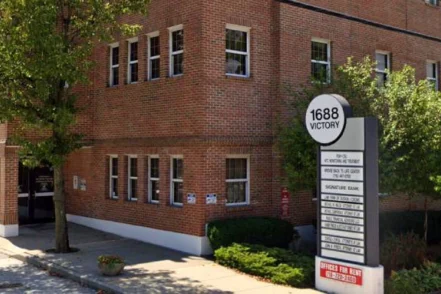
Bridge Back to Life Center Staten Island
1688 Victory Boulevard
Staten Island, New York 10314Treatment Programs
- Alcohol Rehab
- Dual Diagnosis
- Opioid Addiction
- +8
Insurance
- Medicaid
- Private insurance
- +5
-
Mount Carmel Guild Behavioral Health
269 Oliver Street
Newark, New Jersey 07105Treatment Programs
- Dual Diagnosis
- Adult Program
- Senior Rehab
- +3
Insurance
- Medicaid
- Financial aid
- +1
-
Catholic Charities of the Archdiocese of Newark Freeman Street
56 Freeman Street
Newark, New Jersey 07105Treatment Programs
- Alcohol Rehab
- Dual Diagnosis
- Opioid Addiction
- +4
Insurance
- Medicaid
- Private insurance
- +3
-

Addiction Angel
900 South Ave, Unit 3
Staten Island, New York 10305Treatment Programs
- Alcohol Rehab
- Dual Diagnosis
- Opioid Addiction
- +2
Insurance
- Self-pay options
-
American Habitare and Counseling
687 Frelinghuysen Avenue
Newark, New Jersey 07114Treatment Programs
- Drug Rehab
- Dual Diagnosis
Insurance
- Medicaid
- Private insurance
- +1
-
Flynn Fellowship Houses of New Jersey
1089-1091 East Jersey Street E
Elizabeth, New Jersey 07207Treatment Programs
- Drug Rehab
Other Nearby Cities
Top Drug Rehab Centers in New Jersey
-
 New Jersey
New JerseySOBA New Jersey
104 Bayard Street New Brunswick, New Jersey 08901
Treatment Programs
- Alcoholism
- Opioid Addiction
- Drug Addiction
- +3
-
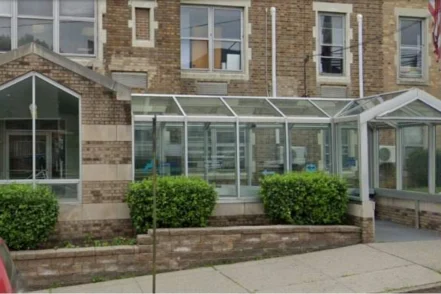 New Jersey
New JerseyEndeavor House North
206 Bergen Avenue, Suite 102 Kearny, New Jersey 07032
Treatment Programs
- Alcohol Rehab
- Dual Diagnosis
- Opioid Addiction
- +5
-
 New Jersey
New JerseyRecovery Centers of America at Lighthouse
5034 Atlantic Avenue Mays Landing, New Jersey 08330
Treatment Programs
- Alcohol Rehab
- Dual Diagnosis
- Opioid Addiction
- +5
-
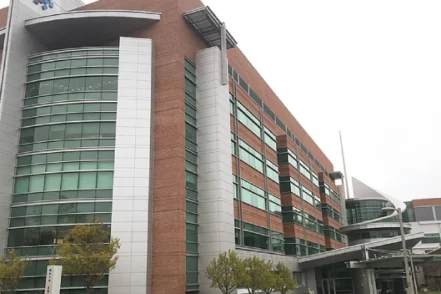 New Jersey
New JerseyJersey Shore University Medical Center Neptune
1945 State Route 33 Neptune, New Jersey 07753
Treatment Programs
- Alcohol Rehab
- Dual Diagnosis
- Opioid Addiction
- +4
-
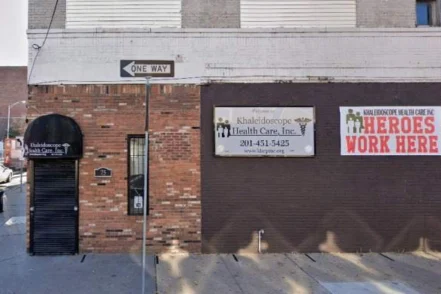 New Jersey
New JerseyKhaleidoscope Healthcare
75 Harrison Avenue Jersey City, New Jersey 07304
Treatment Programs
- Alcohol Rehab
- Dual Diagnosis
- Opioid Addiction
- +5
-
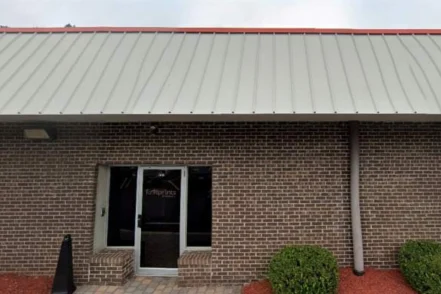 New Jersey
New JerseyFootprints to Recovery New Jersey
3535 Quakerbridge Road, Suite 300 Hamilton Township, New Jersey 08619
Treatment Programs
- Alcohol Rehab
- Dual Diagnosis
- Opioid Addiction
- +7
-
 New Jersey
New JerseyRecovery Centers of America at Voorhees
526 S Burnt Mill Road Voorhees, New Jersey 08043
Treatment Programs
- Alcohol Rehab
- Drug Rehab
- Adult Program
- +2
-
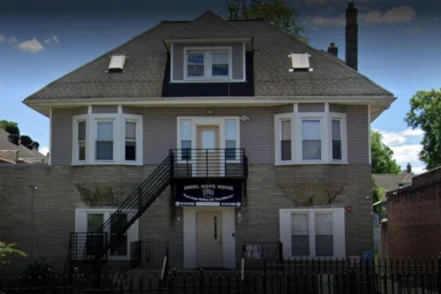 New Jersey
New JerseyAngel Hope House
800 Clinton Avenue Newark, New Jersey 07102
Treatment Programs
- Alcohol Rehab
- Dual Diagnosis
- Opioid Addiction
- +6
-
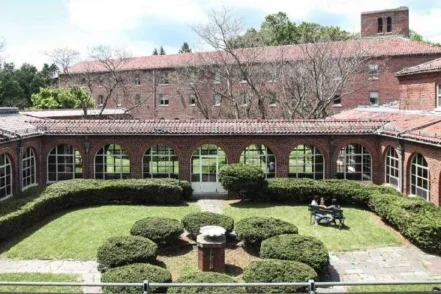 New Jersey
New JerseySunrise House Lafayette
37 Sunset Inn Road Lafayette, New Jersey 07848
Treatment Programs
- Alcohol Rehab
- Dual Diagnosis
- Opioid Addiction
- +5
-
 New Jersey
New JerseySpectrum Healthcare
74-80 Pacific Avenue Jersey City, New Jersey 07304
Treatment Programs
- Alcohol Rehab
- Dual Diagnosis
- Opioid Addiction
- +5
-
 New Jersey
New JerseyAbsolute Awakenings Treatment Center
3000 NJ-10 Morris Plains, NJ 07950
Treatment Programs
- Drug Rehab
- +-2
-
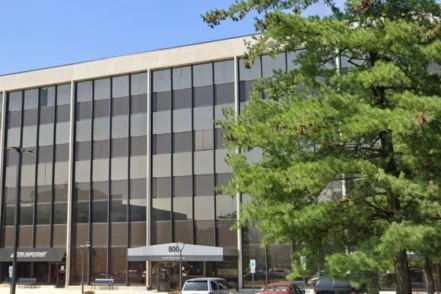 New Jersey
New JerseyLegacy Healing Center New Jersey
800 Kings Hwy N, Suite 100 Cherry Hill, New Jersey 08034
Treatment Programs
- Alcohol Rehab
- Dual Diagnosis
- Drug Rehab
- +3
-
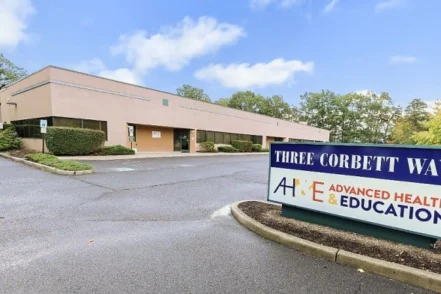 New Jersey
New JerseyAdvanced Health and Education
3 Corbett Way Eatontown, New Jersey 07724
Treatment Programs
- Alcohol Rehab
- Dual Diagnosis
- Opioid Addiction
- +5
